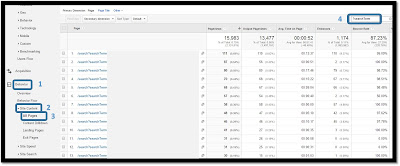Measuring your brand lift is a great way to validate your marketing job, or your value as a vendor to your clients. It's also just a great way for small to medium businesses to see if they are growing in their market.
Brand lift is best measured one tactic at a time. So for example:
- One ad campaign with a vendor.
- One new marketing person.
- One PPC campaign.
- One TV campaign.
A marketing person can run multiple programs and use brand lift to validate their efforts. OR you can try adding PPC (and nothing else) to your media mix and measure the impact of that tactic. Just as long as you don't launch a new TV campaign and PPC in the same month and expect to be able to measure each piece. You will be able to measure the campaign as a whole, but not TV vs PPC.
Basically what we will measure is whether people have top of mind awareness of your business name when they are online looking for a product or service. Are they searching for auto repair and happened upon your site OR did they search specifically for your business name or type in your site name directly?
When they type your name directly, you have brand lift. Your brand is becoming more recognizable in your market.
It's also an interesting way to use digital metrics to measure non-digital campaigns. Brand lift can happen and be measured when you add a TV campaign, for example, by analyzing the time period that the campaign ran.
How do you measure brand lift? Let's go to your Analytics.
There are two things to measure here. First is direct. These are people who directly type your website URL into their browsers.
Click on "direct" and you will see this traffic. You want to look at number one which is (usually) just a /. That forward slash represents your home page.
Now go up to the date in upper right corner and choose your comparison ranges. Give some thought to what you are comparing. If there is some seasonality in your business, you may want to compare year over year. If you are judging a marketing campaign, then compare to the month before you started that campaign.
The comparison will show you what the direct traffic to your site was, and what it is now since you either .... added a campaign, opened for business, hired a marketing person... what ever is being measured.
Now go to Acquisition, All traffic, Channels again and choose organic. Once you click on organic you will get the top keywords used to get to your website. These keywords were used in a search to get to you. Most likely because the person wasn't positive of your web address so it's easy enough to just Google your business name and get there.
The results default to the top 10 keywords. You can go to the lower right side of this page and increase the numbers.
So what you are seeing is a list of keywords used to get to your site. Having the date comparison option selected shows you growth (or decline) of each.
Over all, you want to continue to see a growth in your business name being used as keywords period over period.
There will be many industry and generic keywords for your industry in the list. For Brand Lift, you are looking for an increasing percentage of your actual business name being used.
Make sense? Let us know if you have any questions.




